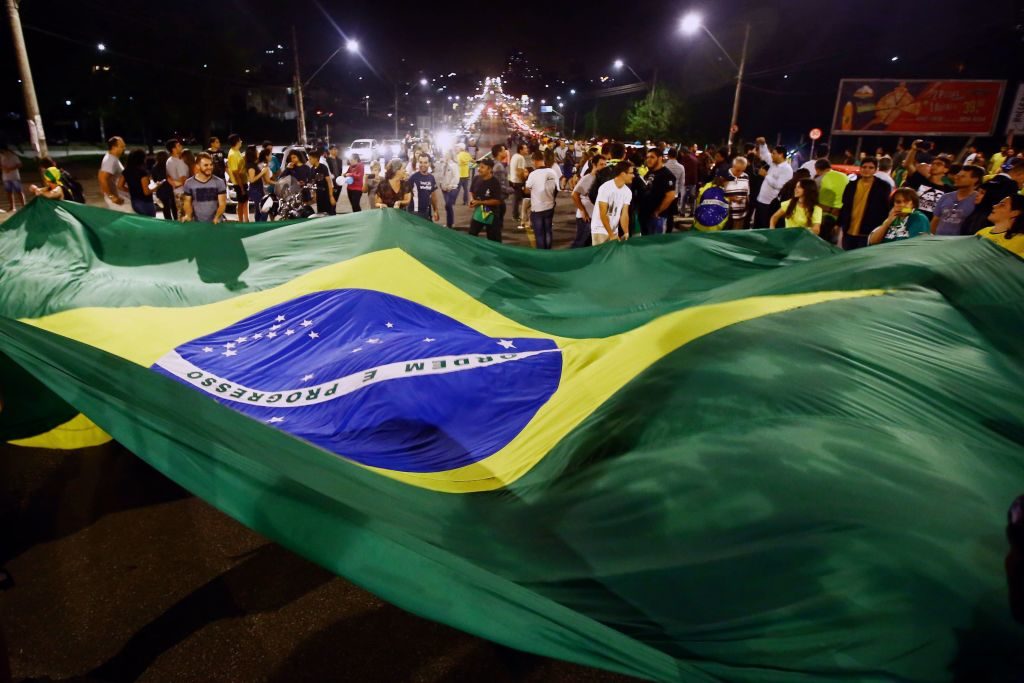Art World
SP-Arte Opens Amid Political Instability, Days After Brazil’s Former President Was Sentenced to Jail
Artists and dealers remain hopeful that the country's art market can survive the political chaos.

Artists and dealers remain hopeful that the country's art market can survive the political chaos.

Henri Neuendorf

Just four days before the opening of SP-Arte, Brazil’s premier art fair, news broke that former Brazilian president Luiz Inácio Lula da Silva had been sentenced to a 12-year jail term on corruption charges.
Lula, as the former leftist leader was known, had been publicly eyeing a re-election bid and was ahead in the polls against incumbent populist Michael Temer. His jailing leaves Brazil’s Worker’s Party without a viable candidate only months before the country’s October election. This destabilization comes just after Brazil’s art scene weathered an onslaught of right-wing aggression aimed at censoring and intimidating artists, galleries, and institutions.
It all raises the question, can Brazil’s once thriving art market survive this political instability? Against the odds, battle-hardened players the Brazilian art market insist that they’re looking to the future with optimism.
“The people that buy art, they don’t depend on these things because they’re in a sphere so above everyone else,” artist Vik Muniz told artnet News. “If you have money to buy art you’re just immune to a lot of these fluctuations. You just buy things if you like them.”
“It’s very sad to see a president in jail—it’s not comfortable for anyone—and it’s sad that this is the picture of our political situation,” said gallerist Marilia Razuk. “But I think there will be enthusiasm and this will not effect the market. We are are very accustomed to ups and downs in Brazil.”
SP-Arte founding director Fernanda Feitosa, who is also a lawyer and two-time Lula voter, said that the market’s optimism stems from the fact that the ex-president received a fair trial. “You may have your opinion whether it’s right or wrong, whether there’s enough evidence or not. But the due legal process has been fulfilled,” she said. “He’s a polarizing figure, but I don’t see that polarization migrating to the activities or buying habits of Brazilian high society. I haven’t seen that and I don’t expect that to happen.”